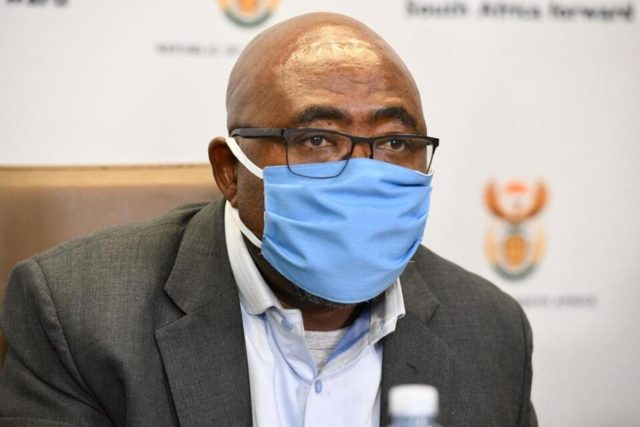Billions of rand were already being disbursed to distressed SA employees
THE EMPLOYMENT and Labour Ministry has indicated that billions of rand were already being disbursed to distressed SA employees who were adversely affected by the coronavirus pandemic, despite continuing complaints about the delay in the payments of Unemployment Insurance Fund (UIF) claims.
The department was yesterday outlining the state of readiness to ensure monitoring of the sectors that were allowed to operate as part of the risk-adjusted approach to reopen the economy after the 35-day level 5 national lock which ended on Thursday night.
Deputy Minister Boitumelo Moloi said Covid-19 temporary relief scheme benefits of R5.3-billion had already been disbursed through bargaining councils and employers, reaching 98 000 employers and 1.1 million workers.
“A further R2.4-billion has been cleared for payment as of tomorrow (today), Monday the 4th of May to 29 000 employers and employees will be benefiting from the disbursement. There are still a number of outstanding claims which are still to be processed from 74 000 representing 491 000 employees and an amount of R1.9-billion in benefits,” Moloi said.
Moloi said the SA Revenue Service (Sars) had already validated 87% of the claims and that they would be paid this week.
Minister Thulas Nxesi has meanwhile warned that the government would push for the criminal prosecution against employers who failed to implement regulations aimed at containing the spread of coronavirus as more businesses permitted to operate under level four lockdown are expected to open today.
A back-to-work direction (regulation) has now been gazetted which seeks to ensure that the measures taken by employers under the Occupational Health and Safety Act (OHS) were consistent with the overall national policies and strategies aimed at minimising the spread of coronavirus.
Among other things, the direction compels employers to conduct a risk assessment review of the workplace and production of a plan, implementation of hygiene and protective measures for all those present in their premises, including taking responsibility for providing protective gear to employees.
Nxesi said its 170 labour inspectors in the field had carried out 2 226 inspections during the lockdown which saw some businesses which were allowed to provide essential services being closed down, adding that prosecution would also be on the cards.
“Any employer who does not comply with the direction may be ordered to close business. In addition, the failure to comply with the OHS is a criminal offence. Failure to take necessary measures to prevent the transmission of Covid-19 may result in criminal prosecution,” he said.
Nxesi said it would also be in breach of the OHS for employees to not declare Covid-19 symptoms and for employers to not investigate cases and inform the department.
“Employers must screen workers for symptoms of Covid-19 at the time that they report for work, mainly fever, cough, sore throat, redness of eyes or shortness of breath, loss of smell and taste, nausea, diarrhoea, fatigue and tiredness…You can see we are talking about responsibility from both the side of the employer and employee,” he said.
He however pointed out the number of the total 200 inspectors had to be increased if the department was to ensure compliance, adding that the department had now resorted to hiring external inspection bodies to increase its reach.
“It will be impossible to inspect every one of the 1.8-million businesses, therefore inspectors will rely on the support of the individual workers and the unions in providing vital information which in turn allows the inspectors to focus on the hotspots and to make an example of a particular offender,” Nxesi said.








